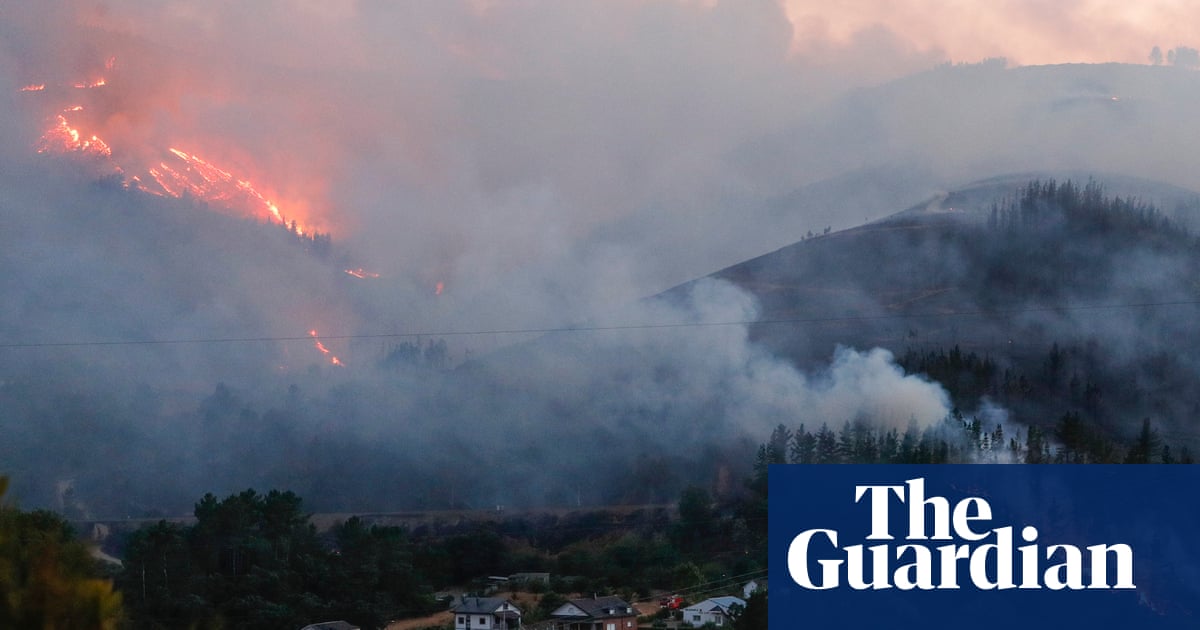
"The extreme weather that fuelled astonishing blazes across Spain and Portugal last month was made 40 times more likely by climate breakdown, early analysis suggests. The deadly wildfires, which torched 500,000 hectares (1.2m acres) of the Iberian peninsula in a matter of weeks, were also 30% more intense than scientists would have expected in a world without climate change, according to researchers from the World Weather Attribution network."
"The researchers found that such conditions could have occurred once every 500 years in the preindustrial climate, but in today's world which has been warmed by the heat-trapping pollution from burning coal, oil and gas they could be expected every 15 years. The effects of climate breakdown on the extreme heat were even stronger, the researchers found. The 10-day maximum temperatures in the region last month were expected to hit every 2,500 years before industrialisation. They are now expected every 13 years."
"The study, which has not yet been submitted for peer review, relied on weather observations rather than analysis of climate models that the group usually conducts in the immediate aftermath of destructive weather. A fuller analysis of the Turkish and Greek wildfires they published last week found climate breakdown had made the extreme weather conditions 10 times more likely."
Extreme weather across Spain and Portugal produced wildfires that burned about 500,000 hectares of the Iberian peninsula. Climate breakdown made the extreme weather 40 times more likely and increased fire intensity by roughly 30%. Hotter, drier and more flammable conditions are intensifying, creating unprecedented fire behavior. Conditions that would have occurred once every 500 years in the preindustrial climate now occur about every 15 years. Ten-day maximum temperatures that were once 2,500-year events are now expected roughly every 13 years. Changes in land use, rural abandonment and ageing populations have left unmanaged, overgrown vegetation that amplifies regional wildfire risk.
Read at www.theguardian.com
Unable to calculate read time
Collection
[
|
...
]